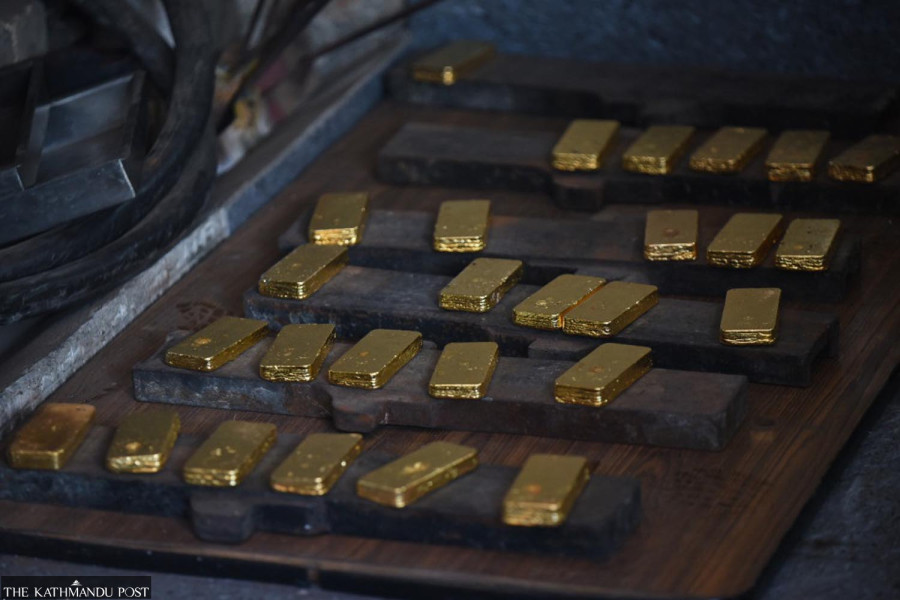Editorial
Old doubts
People are afraid that ‘compulsions of coalition’ will again spare the guilty in the latest gold smuggling case.
One constant public gripe is that the functioning of the Nepali state remains essentially unchanged no matter which political parties come to power. This has a lot to do with the reluctance of those in the government to act against corrupt politicians and high-level officials, even as the corrupt on the lower rungs of the state hierarchy are eagerly prosecuted. Take the most talked about gold scams. In the past, various committees have been formed to investigate the smuggling of gold into the country and they have submitted their probe reports after rigorous studies. But little comes out of those reports, which, most often, are not even made public. Last Thursday, the high-level probe commission formed to investigate last year’s gold smuggling case—whereby around 70kg of gold was smuggled into the country in vapes and brake shoes—submitted its report to Deputy Prime Minister and Home Minister Rabi Lamichhane.
The government soon sprang into action, arresting Dipesh Pun, son of former Vice President Nanda Bahadur Pun, who had been implicated in the scam. A day later, Home Minister Lamichhane gave his go-ahead for legal action against former Speaker Krishna Bahadur Mahara and some top police officials that the probe committee named. It does appear like the new coalition is keen to give a message of zero-tolerance for corruption. Yet there is room for doubt. For instance, just like the previous such reports, this one too has been kept under the wraps, thus fanning suspicions that those in the government could still spare ‘big fish’ in the latest report. There are also doubts over whether the CPN-UML, now the biggest party in the ruling coalition, will allow the government to go after some of its leaders who are reportedly named in the report. The same with the Maoist Centre, the prime minister’s party. The government’s decision to go after Mahara, after all, could be no more than a smokescreen to protect other guilty politicians.
It is thus vital that the latest probe report is made public, in what would also be the clearest show of the government’s commitment to transparency and impartiality. In fact, the probe commission was formed after relentless pressure from the UML and the Rastriya Swatantra Party, Lamichhane’s outfit, when they were in the opposition. These parties have a chance to show that they are not hypocrites, who say one thing when in the opposition and something completely different while in the government. Again, the initial signs are encouraging.
Yet Nepalis also remember that only a year ago the erstwhile home minister, Narayan Kaji Shrestha, had shown similar zeal to prosecute the high and mighty when he came to office. But the gang-busting enthusiasm of Prime Minister Pushpa Kamal Dahal and his home minister quickly fizzled out as they were forced to make various ‘concessions’ to keep the old coalition with the Nepali Congress intact as well as not to let the ensuing investigations open a pandora’s box into their own Maoist Centre party. Nepalis are afraid that there could be a similar kind of grubby compromise this time too.




 13.12°C Kathmandu
13.12°C Kathmandu














